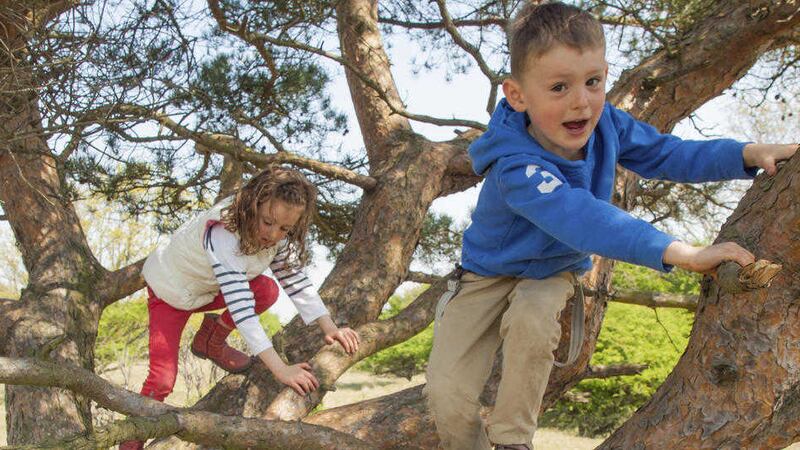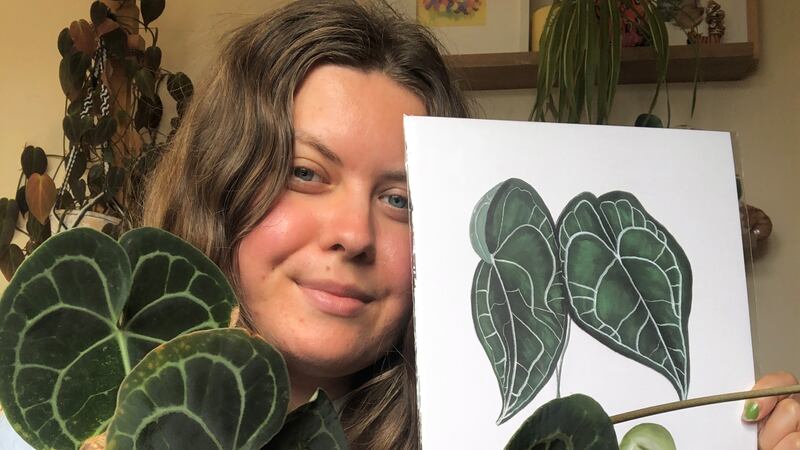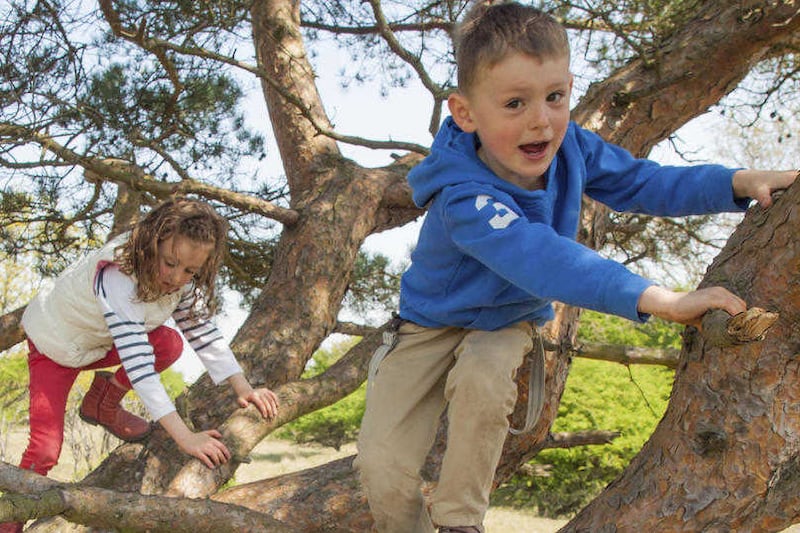DO YOU want a clean, pristine house where everything has it's place and your children are quietly sitting in the corner glued to their tablets or games consoles or do you want a messy home and garden, where happy, sociable and creative children are having fun?
Many parents remember their childhood playing outdoor unsupervised. Yet in today's world where parents are paranoid by lurking dangers, we are raising a generation of children who we shuttle between organised activities, manicured parks and supervised playdates.
Stella O'Malley, a Co Offlay-based psychotherapist and author of Cotton Wool Kids, has witnessed at first hand how this modern approach to parenting is impacting upon childhood and family life. Having counselled numerous anxiety-driven young clients and stressed parents, she says "anxiety is the biggest illness amongst young people in Ireland".
"Living in an era fixated on performance and ability can affect children in different ways, but one thing these children have in common is a deep and abiding fear of failure," O'Malley says.
"Increasingly I meet young clients who come for counselling as a consequence of their destabilising fear of failure. Working too much, trying too hard and always chasing the next achievement is not the royal road to happiness."
To counteract this trend she believes that parents need to stop pushing their children to succeed and smothering them with attention and regulation. Instead, she believes, children should be allowed to get bored, get messy, take risks, fail and, controversially, talk to strangers.
O'Malley is eager to stress that her book is not a parenting guide but rather a guide to giving parents the information and the confidence to free themselves from the the treadmill of after-school activities and over-supervision that has become common today and to raise their children more in touch with the outdoors and the community around them.
We all agree on the importance of teaching children to cross the road safely and who to turn to if they get lost in a supermarket but most prefer to emphasise stranger danger than promote conversing with adults. O'Malley believes children should talk to strangers in order to discern the difference between trustworthy and untrustworthy people.
"Children need to learn judgment and firmness. This doesn't come naturally and one day these kids are going to be 18 and walking home from a nightclub. If they are always used to being very obedient in the face of authority and then that authority isn't savoury, that' s a hugely dangerous situation," says O'Malley.
She is not alone with these views on giving children more freedom. Just earlier this year Judith Hackett, head of the UK Health and Safety Executive, said it was not good for society to overprotect young people as they will grow up to become poor at assessing risk and thus more accident prone in later life.
"They need to be able to live ordinary lives. They should be able to play, fall over and hurt themselves. It is not good for them as members of society to be overprotected. When they join the workplace it will be very hard for employers to deal with them," said Hackett.
Having recently endured the eight-week summer school holidays, most parents are familiar with the "I'm bored," and "What are we doing today?" sighs. But rather than schedule endless activities and trips, O'Malley believes parents need to say "No" and allow children periods of boredom, what will enable them to think independently and creatively.
"It is noticeable that there has been a complete reversal in that some parents today seek approval from their children instead of vice-versa. Kids have been brought up to expect that the nearest adult is going to provide fun and entertainment. If you provide it you are neglecting to teach your children the lifelong gift of self-sufficiency."
Encouraging your children to play outdoors is one of the cheapest and healthiest activities for children of all ages and to make outside appealing O'Malley encourages parents to create safe areas for your children to play in and provide appropriate resources, whether that is planks of wood or a bat and ball.
"There is a wonderful world out there that your children possibly haven’t even noticed yet. Encourage your children to make a fort, build a treehouse or invent a game. We need to normalise playing outside as they grow up instead of teaching them the natural reaction to boredom is to look for their electronic toys."
And for those who live in a residential area, O'Malley suggests getting together with your neighbours to create a weekly car-free Sunday afternoon to make the streets safe for playing in.
The mum-of-two admits her own house isn't particular tidy, with no carefully labelled toy cupboards and her children frequently upending her sitting room on a rainy day in order to make dens with bed sheets.
"I just look the other way and let them get on with it. You are going to sacrifice something – you will either have a pristine house or kids that are on their screens all the time."
Many parents are guilty of putting on a DVD or handing their child their iPad in order to get a few minutes' peace and quite. But O'Malley warns that "proper electronic addiction is happening in Ireland" and parents need to limit their children's screen use.
She also warns that parents need to lead by example when it comes to screen time. "I would acknowledge with them it's difficult, but put together a reward-incentive for reducing screen time and instead encourage the family to have some fun outside.
"Screens are not helping happiness levels. There is a sadness about a two-year-old wasting their life away watching a screen, but there is something much more sinister when they are 12 or 14 and involved in the unknown online. One boy I counselled prefers his pals online than when he meets them in person. This is a sad reflection of how young people are lacking social skills."
So this weekend, why not turn off the television and mobile phones, let the kids out to climb trees and make yourself a quiet cuppa and relax?
:: Cotton Wool Kids – What's Making Irish Parents Paranoid? by Stella O'Malley is published by Mercier Press.



